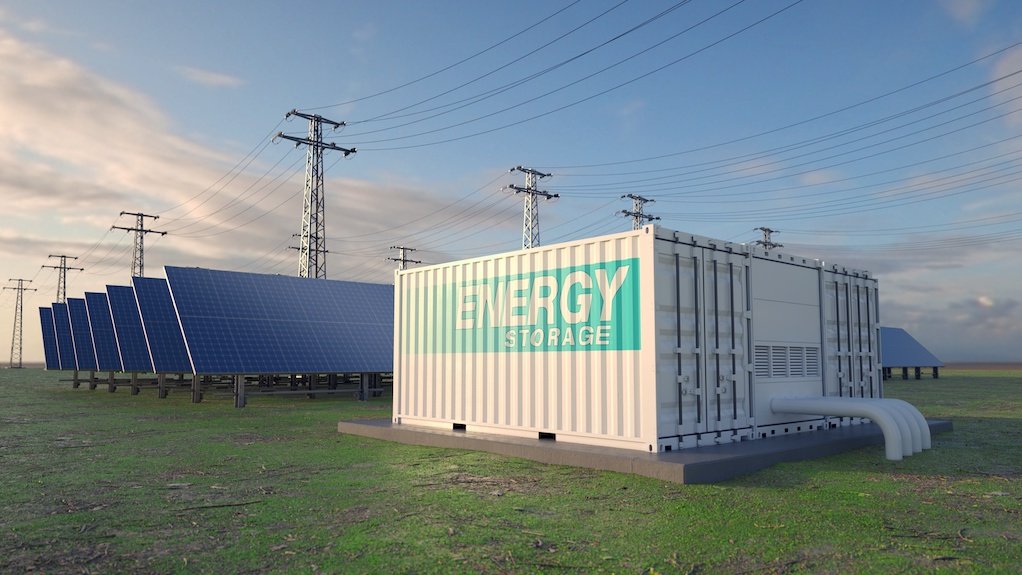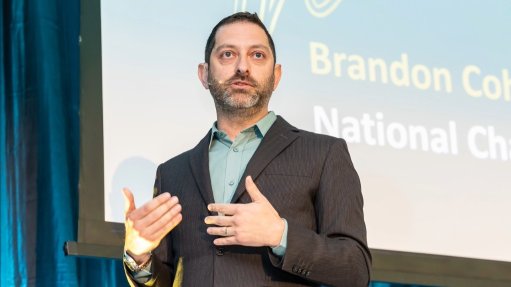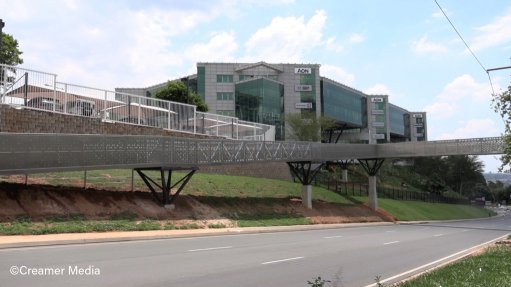Battery energy storage system projects, South Africa – update


Name of the Project
Battery energy storage system (BESS) projects.
Location
Several sites in South Africa.
Project Owner/s
State-owned power utility Eskom.
Project Description
Eskom confirmed the award of contracts for the provision of battery storage solutions in terms of its flagship BESS project in July 2022. The contracts were awarded to Hyosung Heavy Industries, of South Korea, and the Pinggao Group, of China.
The contracts are the first part of the 500 MW BESS initiative announced by President Cyril Ramaphosa on July 25 as part of government’s measures to tackle South Africa’s long-running electricity crisis.
The contract is for the design, supply and installation, as well as operation and maintenance, over a five-year period.
The project is designed to use large-scale utility batteries with a capacity of 1 440 MWh/d and a 60 MW solar photovoltaic (PV) capacity, to be implemented in two phases.
Phase 1 includes the installation of about 199 MW of additional capacity, which includes:
- Skaapvlei (80 MW/320 MWh),
- Hex (20 MW/100 MWh),
- Graafwater (5 MW/30 MWh) and Paleisheuwel (9.5 MW/45 MWh), all in the Western Cape.
Other installations include:
- Melkhout (35 MW/140 MWh), in the Eastern Cape,
- Elandskop (8 MW/32 MWh) and Pongola (40 MW/160 MWh), in KwaZulu-Natal, and
- Rietfontein (1.54 MW/6.16 MWh), in the Northern Cape.
With four hours of storage, this amounts to 833 MWh storage of distributed battery storage plants at eight Eskom distribution substation sites. This phase also includes about 2 MW of solar PV capacity.
Phase 2 includes the installation of 144 MW, which includes:
- Witzenberg (17 MW/68 MWh) and Ashton (17 MW/68 MWh), in the Western Cape, and
- Cuprum (70 MW/280 MWh) and Kiwano (40 MW/200 MWh), in the Northern Cape.
This is equivalent to 616 MWh at four Eskom distribution sites and one transmission site. The solar PV capacity in this phase is 58 MW.
Potential Job Creation
Not stated.
Capital Expenditure
The Pinggao Group’s and Hyosung Heavy Industries’ contracts are collectively valued at R4.4-billion. The second phase will cost an estimated R6-billion. The project is cofinanced by the African Development Bank, the New Development Bank, the World Bank and the Clean Technology Fund.
Planned Start/End Date
All Phase 1 sites are planned to be commissioned by June 30, 2023, and Phase 2 by December 2024.
Latest Developments
Eskom has officially started operating the 20 MW/100 MWh Hex BESS site, which has been built on Eskom’s distribution network in Worcester, in the Western Cape, using batteries supplied by Hyosung, of South Korea.
It is the first Phase 1 project to be completed, but Eskom distribution group executive Monde Bala has told Engineering News that the seven other projects are all progressing on schedule, despite some initial delays at some sites.
Eskom and Hyosung officially opened the Hex BESS site on November 9, indicating that the 100 MWh of energy it could supply daily was equivalent to the consumption of a town the size of Mossel Bay, in the Western Cape, for about five hours.
Meanwhile, Eskom has placed Phase 2 of the project, through which it aims to introduce a further 144 MW/616 MWh of BESS across four sites, on hold. Eskom is seeking clarification from the National Treasury whether BESS projects can be included as part of the capital projects that the distribution business can undertake without breaching the terms of the R254-billion Eskom debt-relief conditions.
Phase 1, which includes about 2 MW of solar PV capacity, is being coupled to the Rietfontein project to help ensure there is electricity for the project to store in a context of chronic supply constraints. Bala says that Eskom distribution will consider further such couplings in future.
However, he has emphasised that the division, currently being separated from generation and transmission, has capital constraints and that its main investment priority remains that of network maintenance and expansion.
It is, thus, considering various alternative funding models for future BESS and/or BESS-plus-renewables deployments, which Bala believes will become increasingly important as more variable renewable electricity is introduced and generation becomes more distributed across the country.
Bala is optimistic that permission will be granted and has indicated an eagerness to press ahead with the projects at the earmarked sites of Witzenburg and Ashton, in the Western Cape, as well as Cuprum and Kiwano, in the Northern Cape.
Meanwhile, the Independent Power Producer Office (IPPO) reports that it is close to finalising the evaluation of 17 bids received in response to the country’s inaugural public procurement for BESS projects launched in March.
Through the programme, government is aiming to procure BESS projects with a combined capacity of 513 MW and a minimum of four hours of storage, or at least 2 052 MWh.
A second BESS bidding round for 1 230 MW is scheduled to be launched in early 2024, but the IPPO has been unable to meet its schedule for the release of the seventh renewables round and a gas-to-power procurement, which were both already meant to be in the market.
Key Contracts, Suppliers and Consultants
Pinggao Group (Skaapvlei, Paleisheuwel and Graafwater projects); Pinggao sub-engineering, procurement and construction contractor Proconics (substation upgrades and electrical and civil balance of plant); and Hyosung Heavy Industries (Pongola, Elandskop and Hex).
Contact Details for Project Information
Eskom media desk, email mediadesk@eskom.co.za.
Article Enquiry
Email Article
Save Article
To advertise email advertising@creamermedia.co.za or click here
Comments
Announcements
What's On
Subscribe to improve your user experience...
Option 1 (equivalent of R125 a month):
Receive a weekly copy of Creamer Media's Engineering News & Mining Weekly magazine
(print copy for those in South Africa and e-magazine for those outside of South Africa)
Receive daily email newsletters
Access to full search results
Access archive of magazine back copies
Access to Projects in Progress
Access to ONE Research Report of your choice in PDF format
Option 2 (equivalent of R375 a month):
All benefits from Option 1
PLUS
Access to Creamer Media's Research Channel Africa for ALL Research Reports, in PDF format, on various industrial and mining sectors
including Electricity; Water; Energy Transition; Hydrogen; Roads, Rail and Ports; Coal; Gold; Platinum; Battery Metals; etc.
Already a subscriber?
Forgotten your password?
Receive weekly copy of Creamer Media's Engineering News & Mining Weekly magazine (print copy for those in South Africa and e-magazine for those outside of South Africa)
➕
Recieve daily email newsletters
➕
Access to full search results
➕
Access archive of magazine back copies
➕
Access to Projects in Progress
➕
Access to ONE Research Report of your choice in PDF format
RESEARCH CHANNEL AFRICA
R4500 (equivalent of R375 a month)
SUBSCRIBEAll benefits from Option 1
➕
Access to Creamer Media's Research Channel Africa for ALL Research Reports on various industrial and mining sectors, in PDF format, including on:
Electricity
➕
Water
➕
Energy Transition
➕
Hydrogen
➕
Roads, Rail and Ports
➕
Coal
➕
Gold
➕
Platinum
➕
Battery Metals
➕
etc.
Receive all benefits from Option 1 or Option 2 delivered to numerous people at your company
➕
Multiple User names and Passwords for simultaneous log-ins
➕
Intranet integration access to all in your organisation















